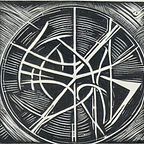Towards a New Theory of Gravity, Mass, Matter and Space
It’s time for a more unified physical mechanics, one in which matter is not arbitrarily separated from space and gravity, but part and parcel of it
9 min readMar 30, 2024
In his formulation of General Relativity, Einstein wrote:
We make a distinction hereafter between “gravitational field” and “matter” in this way, that we denote everything but the gravitational field as “matter.” Our use of the word therefore includes not only matter…
